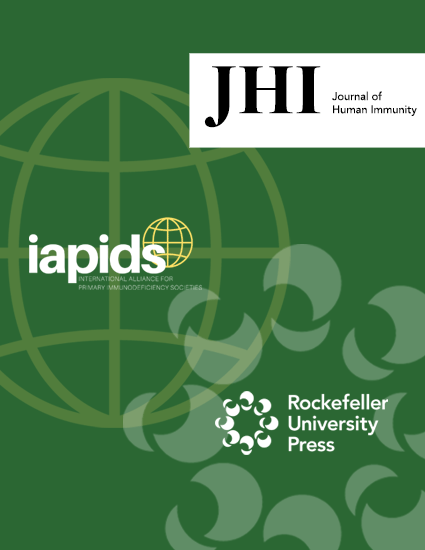Several top editors of the Journal of Clinical Immunology, a Springer Nature title, have jumped ship to start a new, nonprofit journal with Rockefeller University Press.
Jean-Laurent Casanova, the resigning coeditor-in-chief, told Retraction Watch the move followed pressure from Springer to publish more papers as the journal prepared to become fully open access.
Editors from more than 20 other journals have taken similar actions in the past couple of years, as Retraction Watch has logged. Reasons for the walkouts vary, but editors often cite publishers’ perceived focus on paper quantity over quality.
Until 2023, the Journal of Clinical Immunology was the official journal of the Clinical Immunology Society, based in Milwaukee. The society announced that it would allow its contract with Springer to end Dec. 31, 2022, after the group was unable to “reach a consensus with the publisher that would honor and value CIS’ role and participation in JoCI.”
Casanova, an infectious diseases geneticist, professor at The Rockefeller University in New York City, and Howard Hughes Medical Institute Investigator, said the publisher refused to let CIS and other affiliated professional societies have input in the process of selecting editors, including the next editor in chief.
Springer was “adamant that they and only they decide who sits on the editorial board,” he said. “It pissed me off because it pissed off all the societies in the field.”
The members of the societies are the authors, referees and the readers of the journal, Casanova pointed out. Springer “managed to make everyone unhappy.”
Also in 2023, Springer told the editors the company would aim to make the journal open access in 2025, Casanova said, and the pressure to publish more papers began.
“Their intention was, we’re going to go open access, we need to publish everything,” Casanova said. “I cannot be instructed by a publisher to publish everything.”
Casanova and all 11 associate editors of the journal resigned at the end of 2024. According to an announcement on the journal’s website, it became fully open access last month.
The other coeditor-in-chief, Vincent Bonagura of the Feinstein Institute for Medical Research in Manhasset, NY, remains at JoCI. He did not respond to our request for comment, and Casanova declined to comment on Bonagura’s decision to stay.
Springer Nature did not comment on the mass resignations by press time.
The new Journal of Human Immunity is a joint venture between Rockefeller University Press and the International Alliance for Primary Immunodeficiency Societies (IAPIDS), of which CIS is a member. Casanova is its founding editor-in-chief. All of the associate editors from JoCI have joined the editorial team, plus new editors Casanova recruited, he said. The journal expects to begin publishing this spring.
The new journal’s article processing charge will be around $3,500, Casanova said, cheaper than nearly $5,000 for publishing in JoCI. The journal will also offer discounts to IAPIDS members and waive the charges for authors from low- and middle-income countries.
Because IAPIDS splits ownership of the journal evenly with Rockefeller University Press, “any surplus goes back to the research community, not shareholders,” said Susan King, executive director of Rockefeller University Press. The university also co-owns the journal Life Science Alliance with Cold Spring Harbor Laboratory and EMBO Press.
“The field will be paying to publish these papers, but the money will return to the field,” Casanova said. “I think it’s better for us.”
Like Retraction Watch? You can make a tax-deductible contribution to support our work, follow us on X or Bluesky, like us on Facebook, follow us on LinkedIn, add us to your RSS reader, or subscribe to our daily digest. If you find a retraction that’s not in our database, you can let us know here. For comments or feedback, email us at [email protected].

Paywalled literature is not available for Gen AI tools such as perplexity.ai and therefore significantly skews the results (plus all the usual errors). The wider implication of Gen AI on paywalled academic journals is worth considering. Given the tools are now widely being used in the research process (e.g literature reviews; and data analysis), there is now an incentive for researchers to have their literature in the ‘open’ net.
Bravo Mr Casanova
Thank you !